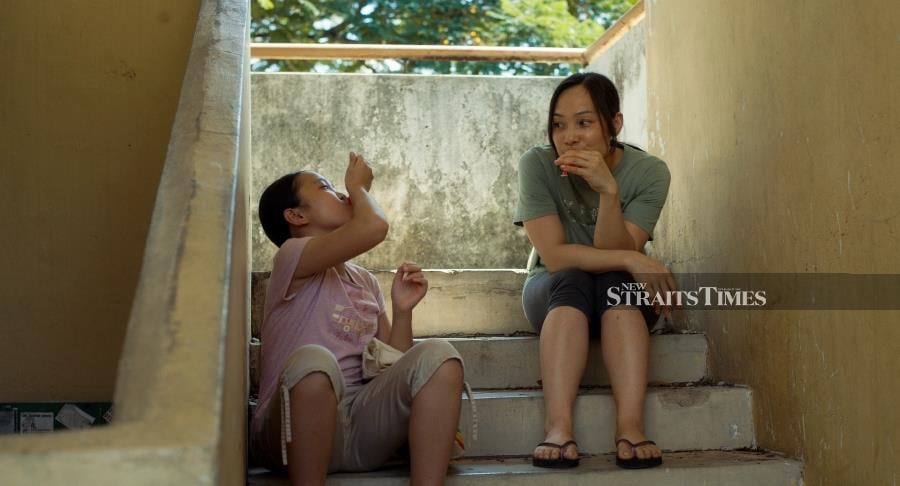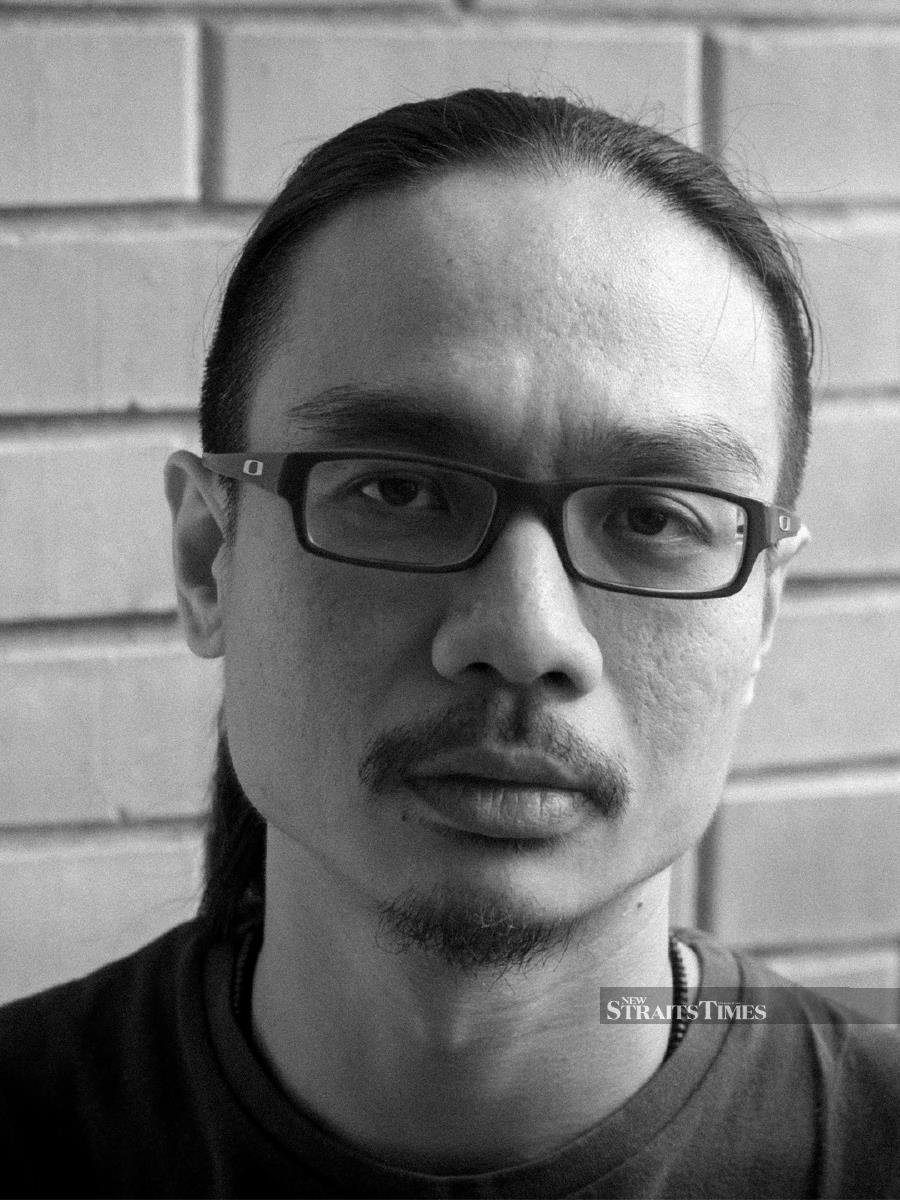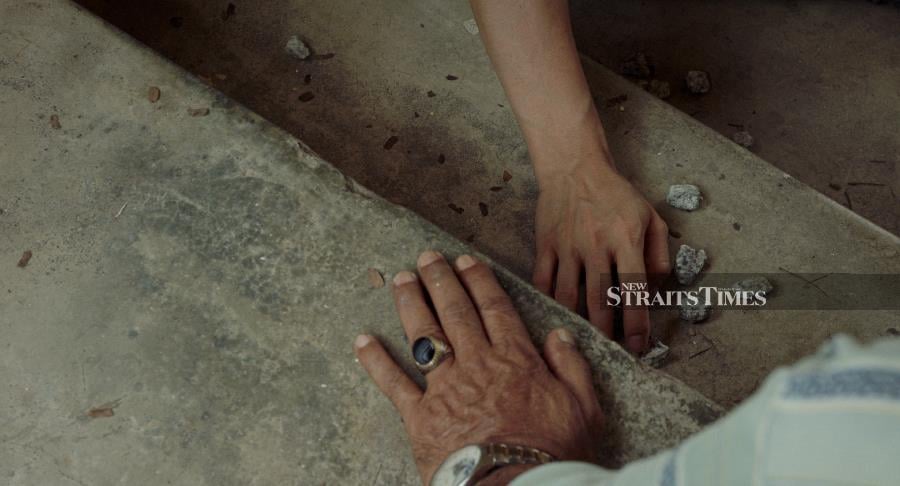MALAYSIAN filmmaker Chia Chee Sum wanted to shine a light on notions of community and to also question issues of identity when he was planning for his first feature film. In the end, he decided the best way to do both was return to his roots.
Chia's debut Oasis of Now made its world premiere in the main New Currents competition at the 28th Busan International Film Festival (BIFF), which came to a close on Oct 13.
It follows the daily movements of an undocumented Vietnamese immigrant (played by the non-actor Thi Diu Ta) as she simply gets on with her existence, picking up work cleaning for families, dodging immigration officials and interacting with the local community — all set in a ramshackle block of apartments the director himself grew up in on the outskirts of Kuala Lumpur.
"I wanted it to feel natural," shared Chia, speaking on the sidelines of BIFF, adding: "I wanted people, if it's possible, just for a short moment, to look at someone without any prejudice or any labels. That would be nice. I wanted to capture that sense of community and of people just getting on with their lives. They don't stop to think about what's going on. They just live those lives."
QUIET DRAMA

Watching Oasis of Now was an engaging experience, and audiences at BIFF were drawn into its quiet drama, with Chia's decision to often stage his action just off camera, which meant that attention was fully focused on Thi Diu Ta, as she reacted to conversations or the actions of other characters.
An example was when she was being addressed by an older neighbour situated out of shot — who may or may not actually be her daughter — and we witness her reactions through facial expressions and body language.
Another had her playing with a young girl — who may or may not be her daughter — and the camera focused on the two character's hands as they threw and picked up stones while sitting on a stairwell, edging but never quite achieving intimacy.
"The staircase that you see in the film… that's my favourite spot to hang out," confided Chia, adding: "The feeling there that I wanted to capture is that life goes on around you. You're present but you also remain at quite a distance, like you can hear the voices from inside the apartments."
It's certainly, at-times, challenging (but ultimately rewarding) attempt to expand cinematic language, and Spanish cinematographer, Jimmy Gimferrer — acclaimed recently for his work on the Malaysian director Amanda Nell Eu's Cannes festival hit Tiger Stripes — used his cameras to peek into rooms, and around corners, quickly developing a sense that the audience is there in the scene as witness to what's happening.
That it all felt natural was helped by the fact that the dialogue was almost entirely improvised. "It's like life," said Chia, adding: "You don't get to see everything. That's the thought that inspired me. How does what you see make you make certain assumptions? And are these the right assumptions about people and about what's going on?"
LIFE GOES ON

Chia grew up in the block of flats where the film is set, and he returned there hoping to catch a sense of realism — and to portray the lives of those on the fringes of society in a simple, matter-of-fact manner. Despite the obvious hardships of existence, they simply get on with life.
"They have dignity. They don't want you to see them in a certain way," he shared, adding: "I think you can say that the film deals with identity. I asked myself throughout the making of the film how much can I hide or not hide? I didn't want to label these characters. If you look at this person on screen, it's like labels are just stripped off. So you decide who they are."
Being part of the New Current competition was an honour for Chia, who started his career via training at Busan's Asian Film Academy and China's FIRST Training Camp, before founding the animation production company the Commonist.
The likes of future Asian cinema giants Hirokazu Kore-eda and Jia Zhangke also first appeared on an international stage via the competition. The Malaysian filmmaker was indeed keeping lofty company in having his debut screen at BIFF.
Chia's hoping that fact alone will help encourage rising Malaysian filmmakers to keep working hard so they can also expand their horizons. "We have a small community in Malaysia," he said, adding: "We do help each other out. It's always supportive. In terms of international cooperation, I'd tell them it really depends on what kind of film you want to do because it might take up some time. So be patient. It's a lot of work, but you can get there."
Enjoy extra discounts with Expedia promo code on Busan room bookings.


